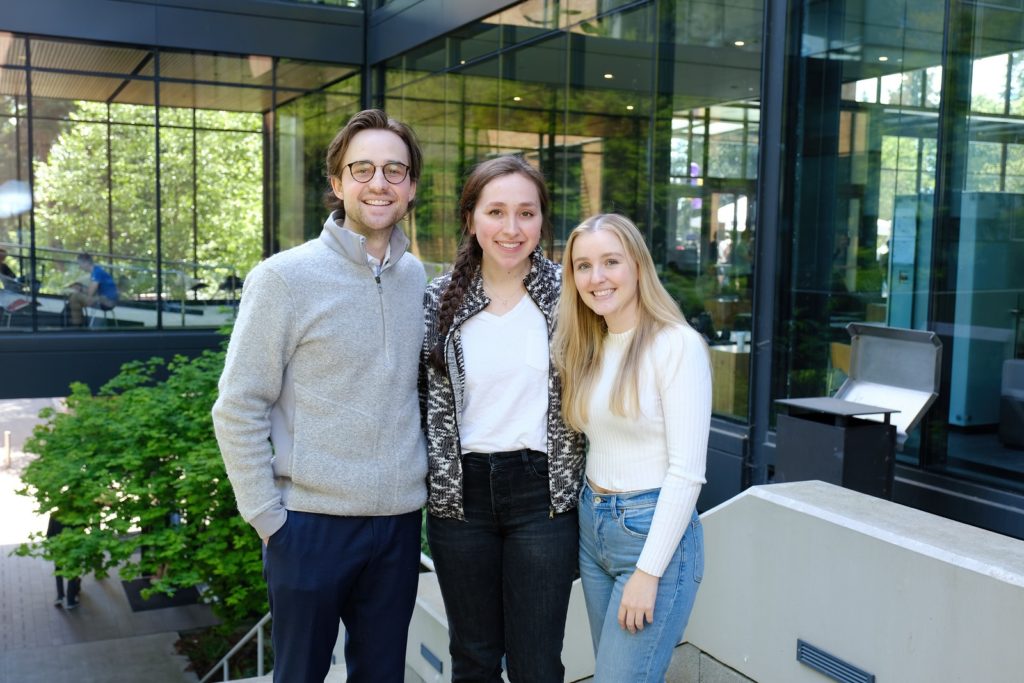Robotic Processing Automation Challenge
Since 2019 the Master of Professional Accounting students at the UW’s Foster School have competed in the Robotic Processing Automation (RPA) Challenge. This competitive assignment within the spring quarter is designed to give students a chance to create their own bot that can conduct repetitive tasks on the computer. Their instructor, Prof Asher Curtis, says this year’s teams were the best he has ever seen.
Robotic Processing Automation takes any computer-based task with repetitive actions, and codes it into just a few clicks of a mouse. The uses of RPA have only begun to be explored and this team challenge provides us a glimpse of what is possible.
The winning team, Python, (James Eyre, Courtney Steilen and Mackenzie McBride) created a bot that automates the employee time entry process with a high degree of accuracy. The program was designed to benefit employees in simplifying the daily recording of tasks. It would also benefit management and clients by increasing the accuracy of time spent on each project.

James Eyre, Courtney Steilen and Mackenzie McBride
The members of Python came up with the idea from their internship experiences. “We saw how time consuming and tedious it can be to track your time each day. With the numerous jobs we were assigned during the week, it became difficult to remember every task completed in enough detail to sufficiently input our time. Accurately reporting your time is crucial for properly billing clients, keeping the payroll process on track, and future project time management. Because of this being a weekly robotic task with potential benefits to all parties involved in the process, we believed this process could benefit greatly from automation.”
The runner up team, Django, (Brendan Chin, Noah Cuneo, Edward Katynskiy, Matthew Park) created a bot to assist with new hires at a company. “We built a bot that automates the process of creating work email accounts for newly onboarded employees and sending the credentials of the newly generated emails to each new employee’s personal email address.”
Team Textblob (Stephany Lopez, Des Rinkes, Charlie Schultz, Ying Li) , a runner up, looked at common schoolwork related tasks and realized they had a solution for needing to check syllabi for individual readings. They created a bot that looks over a Word document (a syllabus in this case) and creates a file that can be uploaded to a common Google calendar.
And the members of Textblob were also thinking about how RPA might help them in their future jobs: “The tools we learned in the RPA challenge will help us be more efficient and reduce human error. As accounting students with various levels of skill in computer science and IT, we found that RPA is not too difficult to manage and that everyone is able to build useful bots.”
Another runner up team, SQL Alchemy (Inho Baik, Yufei Gong, Junjie Lin, and Linky Wang) also built a bot that would be immediately useful to companies. “It generates confirmation statements by extracting data from Excel and transforming the keywords into data from the Excel file.”
The students all expressed confidence that RPA will help them succeed in their future work. The teammates of Django summed it up best: “RPA will help us in our future work by saving time from doing mundane tasks that take significant time out of our day and give us more time to make thoughtful, more judgement-based decisions.”
Reducing those mundane tasks will have major impacts to our society as RPA usage spreads throughout the world. We’ll be watching as our MPAcc students help carry this amazing technology to their future employers.
Learn more about the specialized Master of Accounting programs at the University of Washington’s Foster School of Business.
